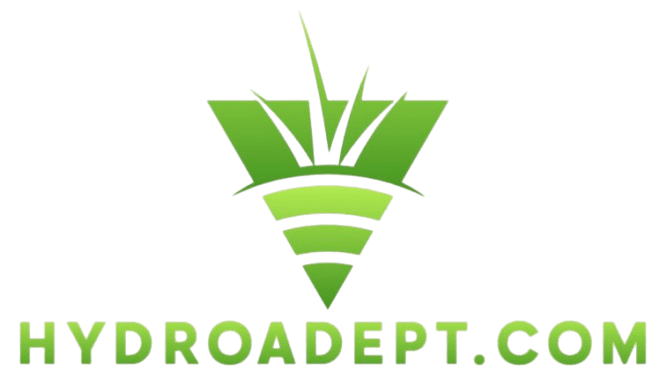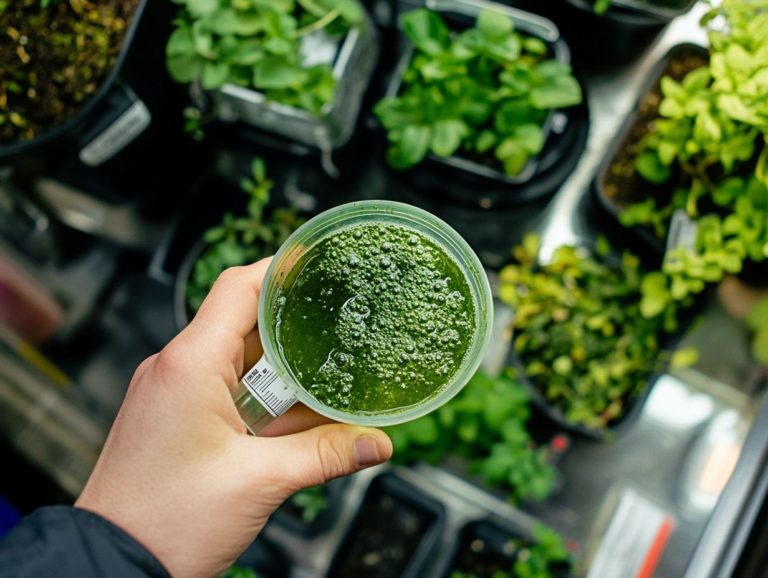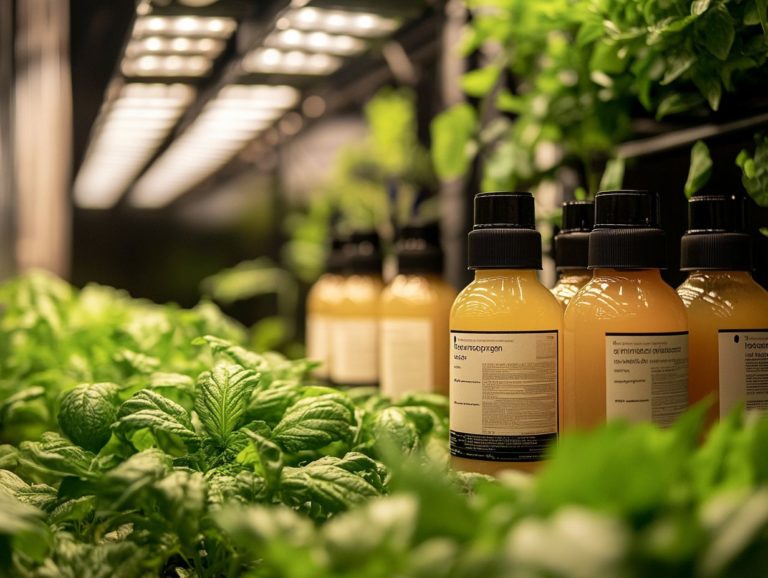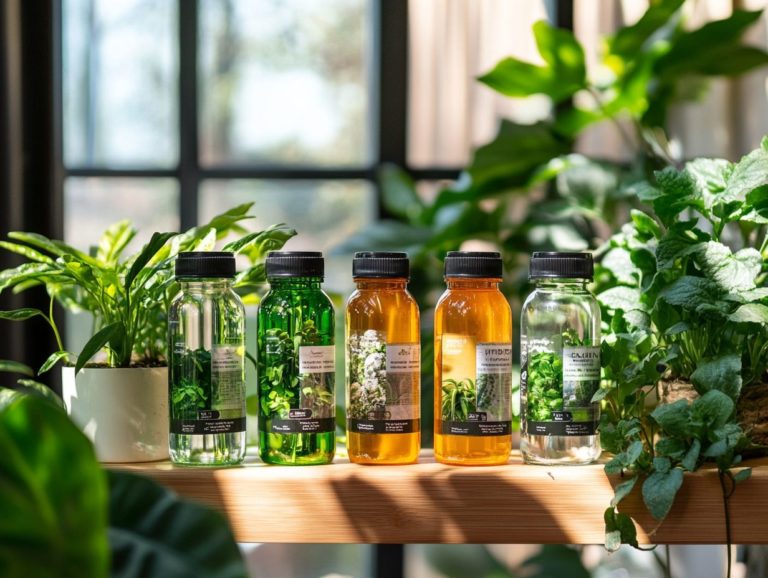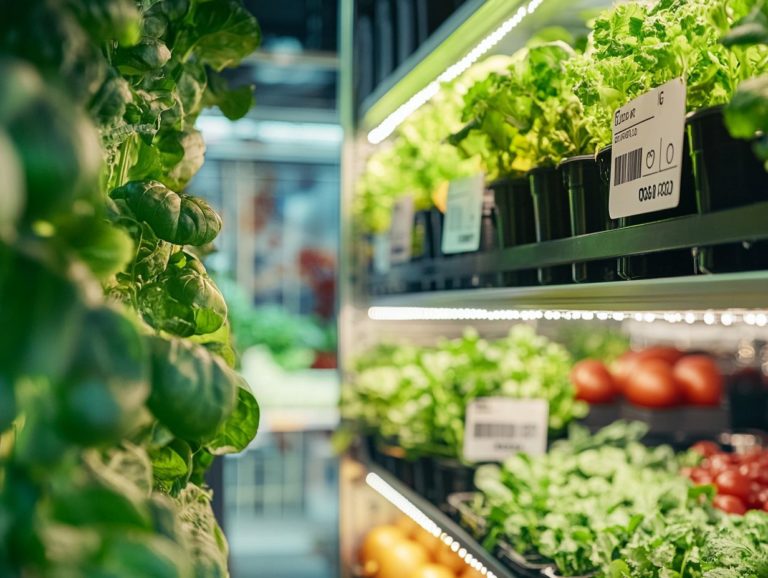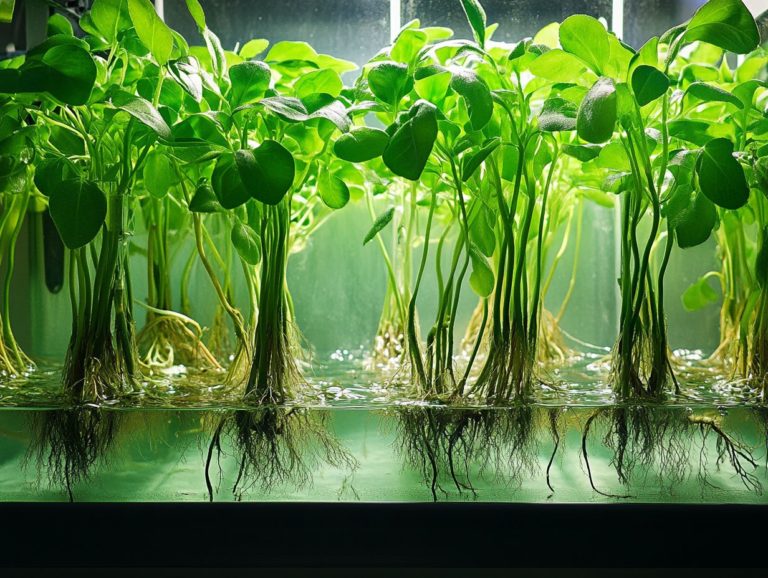How to Prevent Nutrient Deficiencies in Hydroponics
Nutrient deficiencies can quietly undermine your hydroponic gardening efforts and affect plant health and yield.
Let s explore the common causes of these deficiencies, such as water quality issues and imbalances in your nutrient solutions. This information will help you monitor the signs and symptoms, allowing you to catch problems early.
By following best practices for nutrient management and exploring alternative supplementation methods, you can take action now to ensure your hydroponic plants thrive. Discover how to maintain a balanced system for optimal growth!
Contents
- Key Takeaways:
- What are Nutrient Deficiencies?
- Common Causes of Nutrient Deficiencies in Hydroponics
- Signs and Symptoms of Nutrient Deficiencies
- Preventing Nutrient Deficiencies in Hydroponics
- Alternative Methods for Adding Nutrients
- Frequently Asked Questions
- What are the most common nutrient deficiencies in hydroponics?
- How do I know if my plants are experiencing a nutrient deficiency in a hydroponic system?
- What steps can I take to maintain balanced nutrient levels in my hydroponic system?
- Are there any natural ways to prevent nutrient deficiencies in hydroponics?
- Can over-fertilization lead to nutrient deficiencies in hydroponics?
- What should I do if I notice a nutrient deficiency in my hydroponic system?
Key Takeaways:
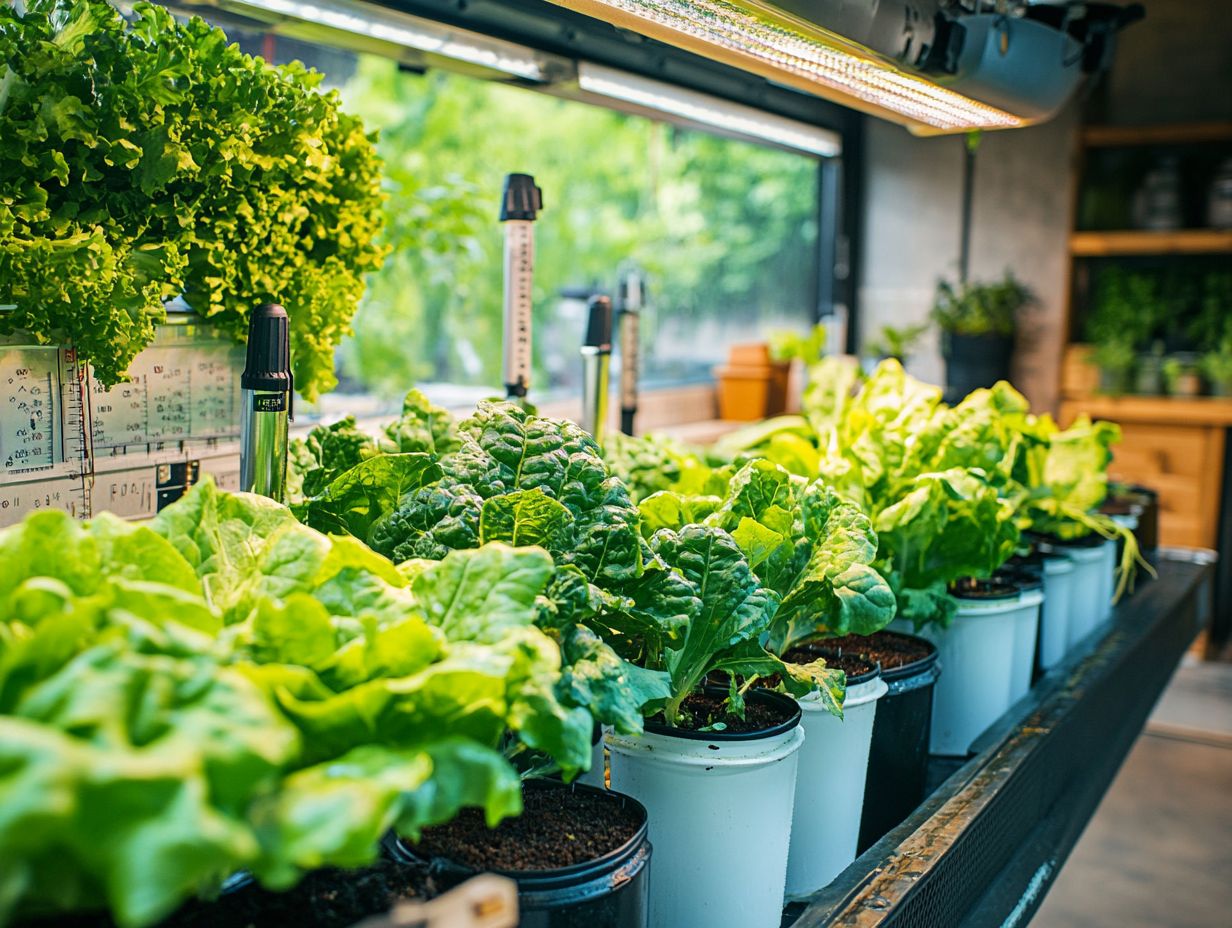
- Proper management of water quality is essential for preventing nutrient deficiencies in hydroponic systems.
- Regular monitoring of nutrient levels and addressing imbalances is crucial for healthy plant growth.
- Choosing between organic and synthetic nutrients depends on your preference, but both can effectively prevent deficiencies when used correctly.
What are Nutrient Deficiencies?
Nutrient deficiencies occur when plants lack essential nutrients vital for their growth and vitality. This can lead to various issues that significantly impact plant health and productivity.
In hydroponics, understanding these deficiencies is crucial. It requires careful management of nutrient solutions and vigilant monitoring of nutrient levels to ensure optimal nutrition, safeguarding against adverse effects on growth.
Common Causes of Nutrient Deficiencies in Hydroponics
Several factors can lead to nutrient deficiencies in hydroponics. It’s vital to understand these elements to maintain plant health and optimize yields.
Chief among these are issues related to water quality, as poor-quality water can limit nutrient availability. Imbalances in the nutrient solution can also hinder efficient nutrient uptake by plants.
Issues with Water Quality
Water quality is crucial in hydroponics; it directly affects the pH and electrical conductivity of your nutrient solution. Both are essential for optimal nutrient uptake. If water quality falters, it can cause soluble salts damage, potentially leading to further nutrient deficiencies and imbalances in your system.
Maintaining the right pH levels is key; it keeps essential nutrients soluble and available. A pH that is too high or low can cause nutrient lockout, preventing plants from absorbing vital elements like magnesium, calcium, and iron.
Furthermore, electrical conductivity levels determine the nutrient concentration in your solution. If these levels fall out of balance, you risk nutrient burn or deficiency, both of which can negatively impact plant health.
By diligently monitoring and adjusting these water quality parameters, you foster a thriving hydroponic environment, maximizing yields and minimizing potential issues.
Imbalances in Nutrient Solution
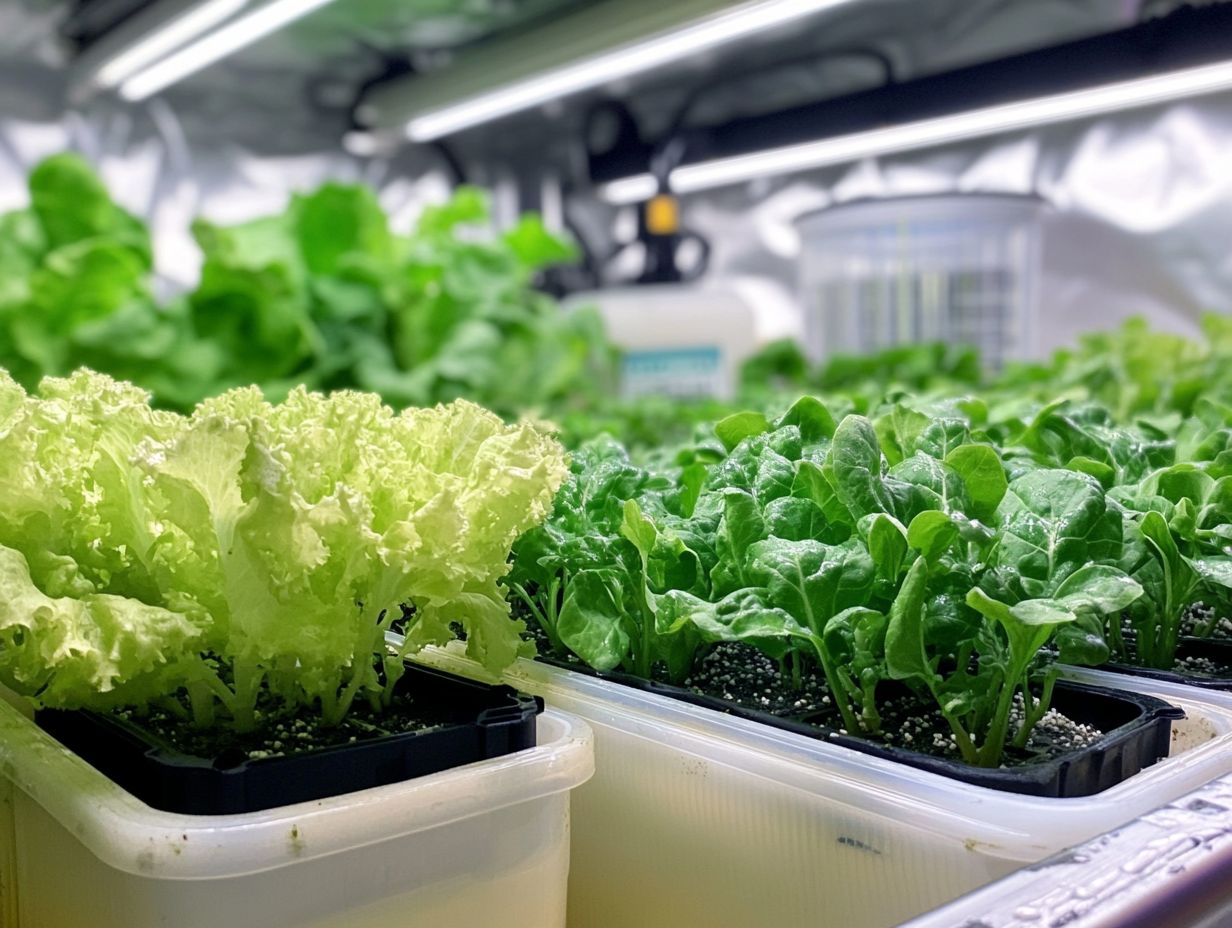
Imbalances in your nutrient solution can create challenges within your hydroponic system, negatively impacting nutrient uptake and leading to nutrient toxicity or deficiencies. Understanding nutrient interactions is essential; certain macronutrients and micronutrients must be balanced to foster optimal plant growth.
For example, an excess of nitrogen can encourage lush foliage growth but may stifle flowering and fruiting if left unchecked. In contrast, phosphorus is crucial for energy transfer and root development, but its absorption can be hindered by elevated levels of zinc.
Potassium, essential for water regulation and enzyme activation, may lose its effectiveness when calcium levels drop, resulting in weakened plant structure and diminished disease resistance. Achieving a balanced nutrient solution involves more than just adding the right components; it’s about comprehending how these elements interact to enhance plant vitality.
Signs and Symptoms of Nutrient Deficiencies
Recognizing the signs and symptoms of nutrient deficiencies is crucial for your success in hydroponic gardening. These indicators offer valuable insights into specific nutrient issues that may hinder your plants’ growth.
You might notice common symptoms such as discoloration, stunted growth, or unusual leaf development. Each of these manifestations corresponds to particular nutrient deficiencies, such as calcium or magnesium. Addressing these issues promptly will ensure your plants thrive.
Identifying and Addressing Deficiencies
Identifying and addressing nutrient deficiencies requires keen observation of plant symptoms. This allows you to implement ways to manage nutrients effectively and restore their health.
Familiarizing yourself with common nutrient symptoms, like yellowing leaves that signal nitrogen deficiency, empowers you to make the right nutrient recommendations and adjustments.
Beyond visual cues, it’s essential to utilize testing methods, such as soil or nutrient solution analysis. This helps you gain a precise understanding of nutrients available in your growing medium. For those exploring hydroponics, Understanding Hydroponic Nutrient Solutions can be crucial. Regular testing can uncover hidden deficiencies that might not yet be visible, allowing you to intervene before severe damage impacts your crop’s viability.
Taking timely actions, supported by accurate nutrient recommendations based on your test results, fosters optimal plant growth and yield, enhancing the overall health of your garden or agricultural operation.
Preventing Nutrient Deficiencies in Hydroponics
Preventing nutrient deficiencies in hydroponics demands a commitment to proactive nutrient management. You should engage in regular monitoring and make timely adjustments to the nutrient solution, ensuring your plants receive optimal nutrition throughout their growth cycle.
This attentive approach maintains a balanced nutrient profile and significantly enhances overall plant health and productivity.
Top Tips for Thriving Plants!
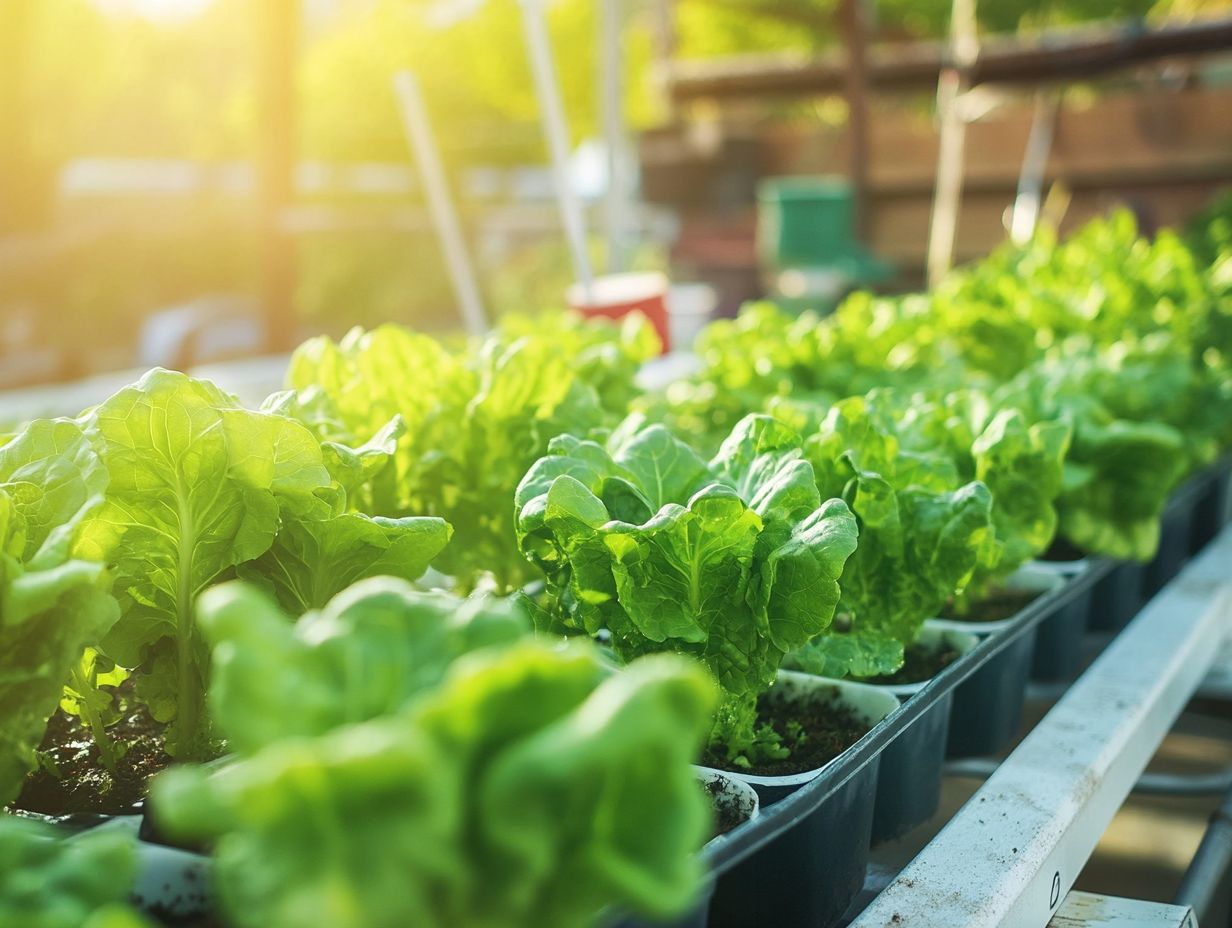
Implementing best practices for nutrient management is essential for maintaining robust hydroponic systems. Ensure your nutrient solutions are well-balanced and finely tuned to the unique needs of your growing plants.
A great strategy is to choose nutrient solutions specifically formulated for the types of plants you’re cultivating. Different species have distinct nutritional requirements. For those encountering challenges, learning how to troubleshoot common hydroponic issues and adjusting the nutrient composition according to specific growth stages can significantly enhance plant health and yield.
For example, during the vegetative stage, a boost in nitrogen can be highly beneficial, while the flowering stage may require an increase in phosphorus to support vibrant blooms.
Opting for high-quality nutrient sources can vastly improve absorption rates. This ensures your plants receive essential elements while minimizing excess runoff that could lead to environmental consequences.
Always Monitor Nutrient Levels Closely!
Keep a close eye on nutrient levels! This simple step can prevent serious issues and keep your plants thriving. Accurately measuring nutrient composition and pH maintains optimal conditions for nutrient uptake.
Using tools like digital pH meters and conductivity probes tools that measure the nutrient concentration in water enhances the accuracy of your measurements. Swiftly address any fluctuations.
Techniques such as daily checks or weekly logs help you establish trends, making it easier to spot potential issues before they escalate.
By consistently observing these parameters, you can sidestep common pitfalls of nutrient deficiencies that stifle growth and yield. A proactive approach nurtures robust plant health and fosters a thriving hydroponic environment, maximizing productivity and minimizing losses.
Start checking your nutrient levels now and give your plants the best care they deserve!
Alternative Methods for Adding Nutrients
Exploring alternative methods for adding nutrients can offer effective strategies to ensure your hydroponic plants receive essential nutrients, whether through organic or synthetic options.
Each method presents distinct advantages and drawbacks, impacting nutrient availability and overall plant health in various ways.
Organic vs. Synthetic Nutrients
The debate surrounding organic versus synthetic nutrients in hydroponics focuses on several factors, including nutrient composition and availability. Their impacts on plant nutrition and health are significant.
Organic nutrients are lauded for sustainability and gradual release, while synthetic options are celebrated for their immediate availability and precision in nutrient application.
Each type of nutrient has its own advantages and challenges.
For example, organic options tend to enhance soil biology and can lead to more robust growth over time. However, they require careful management to avoid nutrient imbalances.
Conversely, synthetic nutrients offer a streamlined approach, allowing you to exert exact control over the nutrient formula. Be mindful: they can sometimes cause salt buildup, adversely affecting root health.
Your decision will depend on your gardening goals. Whether you lean toward sustainability or aim for rapid plant growth, this will guide your approach to nutrient management in hydroponic systems.
Frequently Asked Questions
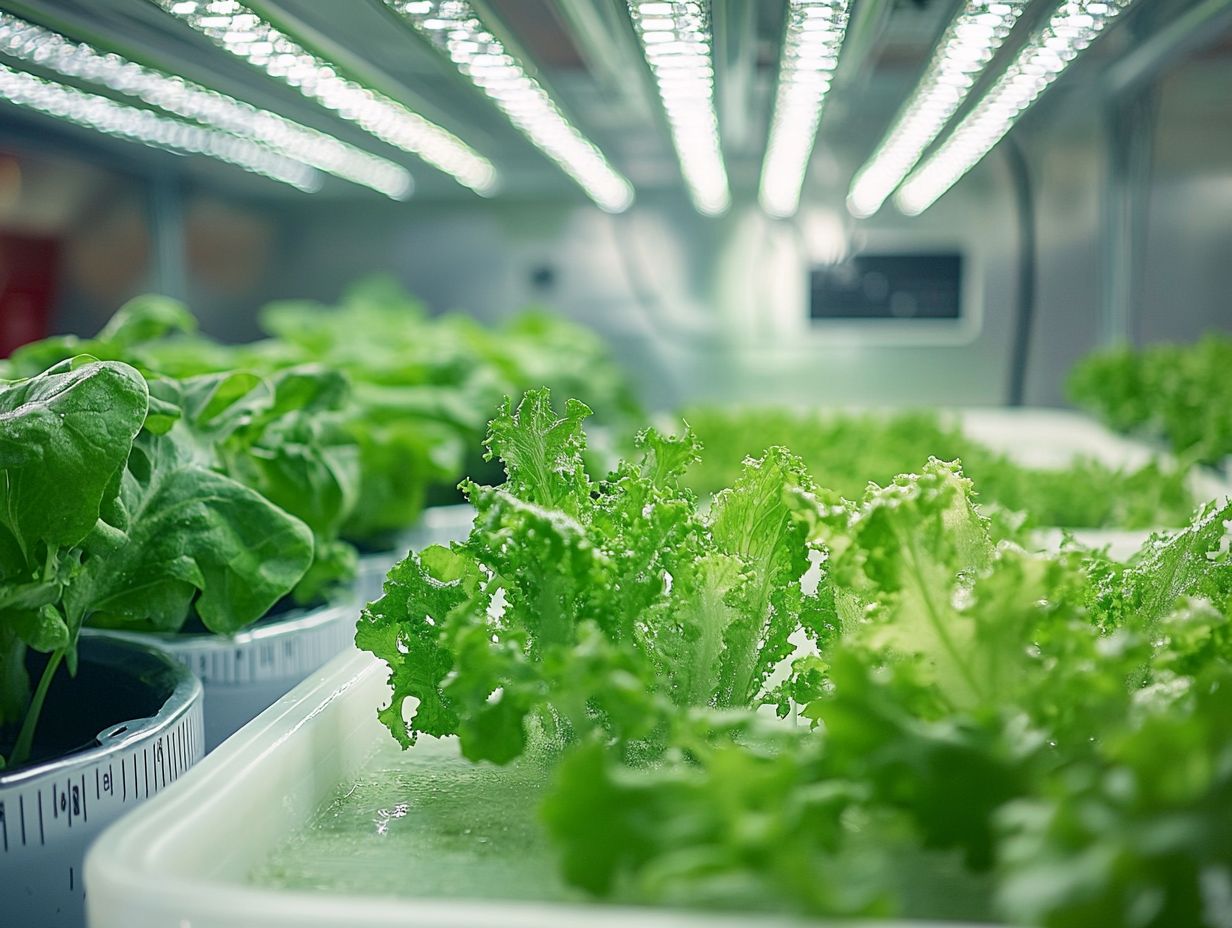
What are the most common nutrient deficiencies in hydroponics?
Nitrogen, phosphorus, potassium, calcium, magnesium, and iron are the most common nutrient deficiencies. Prevent these by regularly monitoring and adjusting nutrient levels, using quality solutions, and ensuring proper lighting and airflow.
How do I know if my plants are experiencing a nutrient deficiency in a hydroponic system?
Signs of nutrient deficiencies may include slow growth, yellowing leaves, and wilting plants. Conduct regular tests to identify deficiencies before they become severe.
What steps can I take to maintain balanced nutrient levels in my hydroponic system?
To keep nutrient levels balanced, follow a regular feeding schedule and adjust based on plant growth and water quality. Use a high-quality nutrient solution and regularly flush the system to prevent build-up. Monitoring nutrient concentrations is essential for effective nutrient management.
Are there any natural ways to prevent nutrient deficiencies in hydroponics?
Yes! Use organic nutrient sources, incorporate beneficial microbes, and diversify crops. These methods promote overall plant health and improve nutrient uptake.
Can over-fertilization lead to nutrient deficiencies in hydroponics?
Yes, over-fertilization can cause nutrient deficiencies. Excessive nutrients can create nutrient imbalances and block the uptake of essential nutrients, leading to nutrient toxicity. Following recommended dosages helps maintain healthy nutrient levels.
What should I do if I notice a nutrient deficiency in my hydroponic system?
If you notice a deficiency, address it immediately by adjusting nutrient levels and flushing the system. Providing additional supplements or foliar sprays can also help. Regular monitoring, including nutrient analysis, is crucial for preventing future deficiencies.
